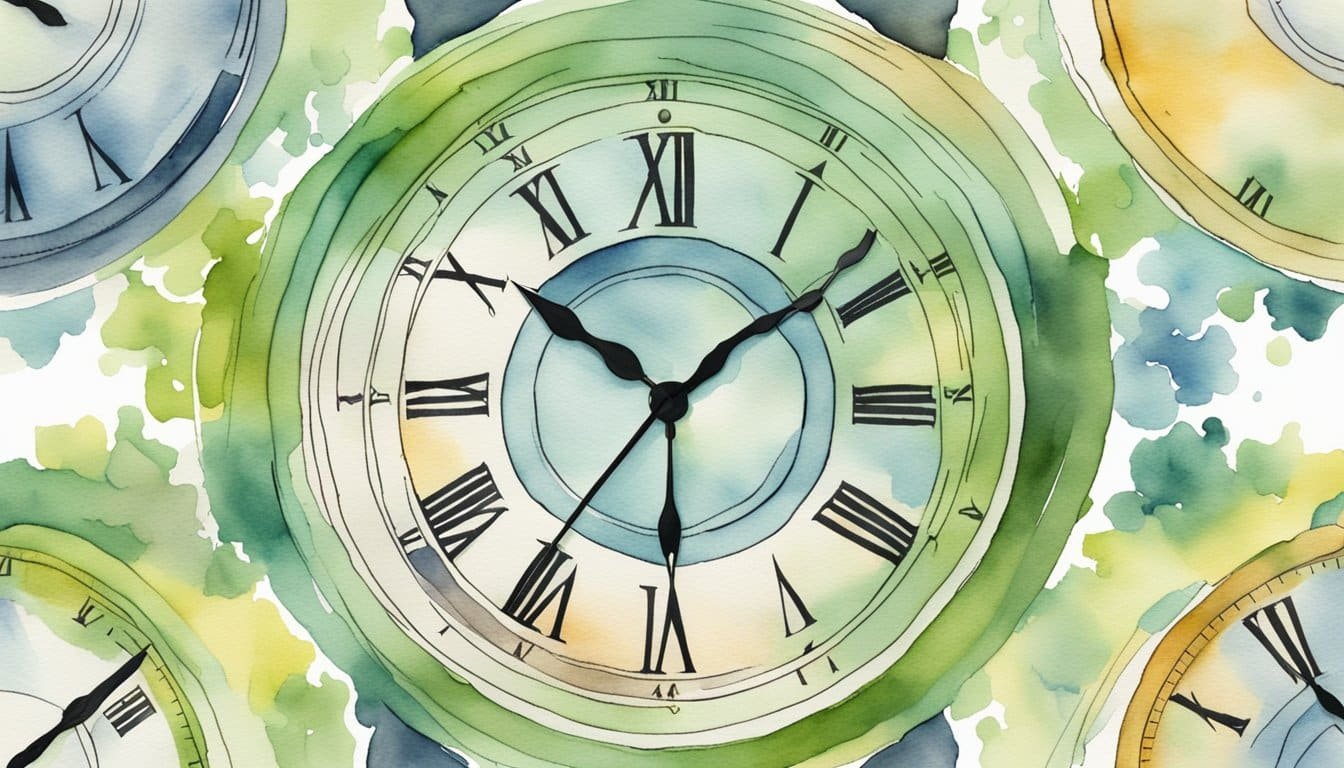Understanding Lifespan Limitations
When it comes to how long humans can live, science seeks to unravel the complex interplay between genetics, environment, and lifestyle. The journey spans from cellular intricacies to sweeping historical trends.
Biological Perspectives on Aging
Aging is an inevitable biological process influenced by a variety of genetic and environmental factors. At the cellular level, one’s lifespan is closely associated with the gradual shortening of telomeres, the protective caps at the ends of chromosomes that tend to fray with each cell division. Research in the field of gerontology suggests that the manipulation of these and other genetic factors could potentially extend the quality and duration of human life. Additionally, oxidative stress and the accumulative damage caused by free radicals are considered significant contributors to the aging process. Understanding these underlying mechanisms is key for researchers in the quest to increase healthspan alongside lifespan.
Historical Data Analysis
Reviewing past and present data on human life expectancy provides insights into the progress and challenges in extending lifespan. Despite advancements in medicine and public health, the increase in lifespan has not always correlated with longer years of living healthfully. A historical analysis reveals fluctuations in the mortality rate due to various factors, including pandemics, wars, and socio-economic conditions. By analyzing the trends, we can pinpoint periods where significant medical breakthroughs played a transformative role in extending life expectancy. It also underlines the important distinction between simply living longer and living a longer, healthier life.
Through understanding the limitations of lifespan from both biological and historical standpoints, people can not only anticipate a longer life but also strive for a life filled with vitality and well-being.
Influences on Life Expectancy

Life expectancy hinges on a complex interplay of various factors ranging from accessible health care to genetic predispositions. This section peels back the layers on how these critical elements influence how long people can expect to live.
Role of Healthcare
Health care plays a pivotal role in life expectancy, with advancements and access to medical services often leading to longer lives. Countries with robust health care systems typically see higher life expectancy rates, as illnesses are diagnosed and treated more effectively. Preventive care and early intervention can stave off complications from chronic diseases and improve overall longevity.
Impact of Lifestyle and Disease
Lifestyle choices are major determinants of life expectancy. Diets, exercise routines, and habits like smoking and alcohol consumption have direct effects on health. Chronic diseases such as heart disease and diabetes can shorten lifespans, whereas maintaining a balanced diet and active lifestyle can fend off these conditions. For instance, individuals adhering to a Mediterranean diet rich in fruits, vegetables, and healthy fats often exhibit reduced risk of heart disease, which can contribute to a longer life.
Genetics and Longevity
Genetics also play a significant role in determining life expectancy. Some people inherit genes that make them more susceptible to certain diseases, while others carry genetic traits that contribute to extraordinary longevity. Research into long-lived individuals has unveiled genetic factors that may protect against age-related diseases. Moreover, understanding how genetics influence aging can provide insights into how to increase the healthy years of the global population, even as cognitive impairment remains a challenge among the aging demographic. The interplay between genes and environment continues to be a key area of study in the quest to extend life spans.
Extremes of Human Lifespan

The quest to understand the maximum potential for human life has both puzzled and fascinated scientists. They grapple with the boundaries of longevity, exploring how long people can sustain life under optimal conditions.
Centenarians and Supercentenarians
Centenarians are individuals who have reached the impressive age of 100 years, while supercentenarians have lived to at least 110 years. These extraordinary ages are of great interest to researchers who study the International Database on Longevity, which compiles detailed cases of supercentenarians from around the world. The demographics of these age groups provide crucial insights into the factors that contribute to extreme human lifespans.
Maximum Reported Age at Death
The title of the oldest person ever to have lived is held by Jeanne Calment of France, who lived to be 122 years old. This exceptional maximum reported age at death signifies the human longevity potential, stirring curiosity about its underlying causes. Studies often employ Bayesian statistics as a mathematical approach to infer the likelihood of reaching such advanced ages, considering various demographic and biological data.
Longevity Research
Longevity research not only focuses on who lives the longest but also delves into how and why they do so. Organizations like the National Institute for Child Health and Human Development are at the forefront, funding studies to understand aging processes. They aim to identify whether there’s a ceiling to the natural human lifespan and the factors that might influence this extreme of survival. The longevity puzzle continues to captivate, as scientists strive to unravel the secrets of a life that stretches well beyond the average expectancy.

